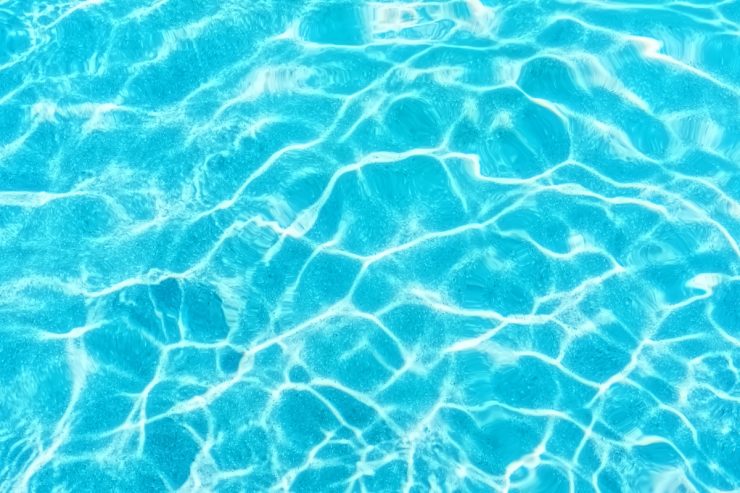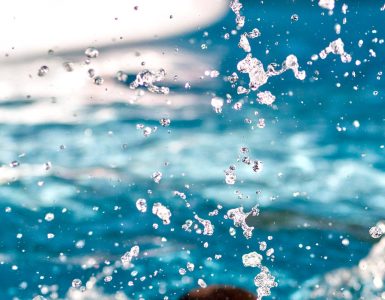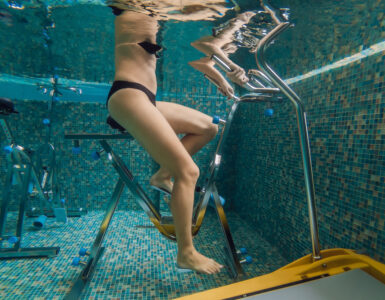Most people want a clean pool. Many people know that a filter can help with this. But how do pool owners choose the right model, the right provider and the right technology for their pool?
What pool filter systems are available?
BeyondSurfing has compiled the knowledge of various pool experts and presents a compact guide that answers all questions relating to pool filter systems.
Content
Bestsellers: The most popular pool filters
(**Last update 2024-12-03)
More articles you might find interesting:
Buy a pool filter:
The available filter systems
Frank C. Müller ★★★★★
(Filter expert at Wikipedia.de)
The first step to finding the right pool filter is knowing about the different filter systems and pump types.
Pump systems
There are 2 types of pumps:
1 Self-priming filter pumps
Self-priming filter pumps can be installed above or below the water level. They work independently of the incline. In contrast to normal suction pumps, they transport air as they can vent the hoses independently.
2 Normal-priming pumps
Normal-priming pumps cannot transport air and can only be installed lower than the water level. However, these versions are usually cheaper and easier to maintain.
Transporting air means that the suction pipe inadvertently sucks in air instead of water. This happens, for example, when filter pumps are confronted with movements of the water surface.
Also interesting: The most popular pool pumps reviewed.
Filter types
The most common filter systems on the current market are pool filters that work with sand and filter balls, or cartridge filters. Below you will find everything you need to know about the models and their advantages and disadvantages.
Sand filter
- Lower costs
- Easy maintenance
- Sand lasts five to seven years before it needs to be changed
- Particularly fine sand is expensive
- Water is wasted due to the necessary backwashing
- In the long term, the pressure in the boiler increases, which reduces the filter effect
Customers with a limited budget and little time for maintenance are well advised to use a sand filter. These are also ideal for large pools as they are powerful and difficult to clog.
This is how it works:
The integrated pump draws water from the pool and then filters it through a large tank full of sand. Quartz sand is usually used here. This detects particles with a size of 20 micrometers and more.
The technology behind it?
Every grain of sand has a rough surface. This becomes clear when viewed through a microscope. This rough surface can retain impurities and deposits that pass through the filter.
This also explains why the sand has to be changed every few years. The dirt particles grind the surface of the individual grains smooth over time – the filter effect becomes weaker.
Cartridge filter
- Filters even the smallest impurities
- No backwashing; less water wastage
- Also works well with low pump capacity
- More maintenance work than with sand filters
- More waste due to filter change
- Thorough cleaning is required 1 to 2 times a year
Although they are usually somewhat more expensive than sand filters, cartridge filters have the advantage that they work more effectively in smaller pools.
How it works:
A plastic cylinder is located in a tank that is somewhat smaller than that of sand filters. This is surrounded by a filter medium that resembles a plastic coffee filter – the cartridge. Water flows into the tank and through the fine openings in the cartridge. The dirt is collected and the water flows back into the basin through the fine openings.
The right maintenance?
Instead of backwashing as with the sand filter, the cartridge is removed and rinsed by hand with water. Simply take a glass of water and tip it in. Once a year, a filter cleaner spray, diluted hydrochloric acid or other thorough cleaning should be used. Although this is a little more manual work than backwashing, it wastes less water.
Decision: Which pool filter to buy?
Self-priming pumps are more reliable and therefore preferable. When choosing a filter, customers need to ask themselves what form of maintenance, water consumption and environmental friendliness they prefer.
Once a pump and filter type have been selected, all that remains is to make the right purchase decision. Various features are relevant for this:
Circulation capacity
Ideally, the pool water should be completely circulated and filtered at least twice a day. The so-called circulation rate indicates how many liters of water per hour the pump filters. This means that the output must match the size of the pool.
This information can be found here: Most manufacturers state the value in cubic meters in the product description. The higher the performance, the faster and the more water is cleaned by the filter pump.
Good to know: One cubic meter (1 m³) corresponds to 1,000 liters of water. This means that a pump with a capacity of 1.7 cubic meters per hour circulates 1,700 liters per hour.
Power consumption
When buying a pool filter, don’t forget the power consumption. Customers can save money here. A filter system with an output of 500 watts has a consumption of 0.5 kW (kilowatts). Customers currently pay around $ 0.15 for 60 minutes of operation.
Economical but powerful enough: Powerful pumps naturally consume more electricity. However, there are differences between pumps of the same power: this means that one pump works just as powerfully as the other, but consumes less electricity.
Further extras
There are filter pumps that have an integrated timer. This allows fixed running times to be programmed. For example, the pool filter runs automatically during the night. When you wake up, you will find a pool that has already been cleaned without the pump making any noise.
Some filter pumps can be combined with a (solar) heating system. This is suitable for smaller pools that should also have pleasant temperatures in fall or spring. A hot tub, on the other hand, usually has an integrated filter pump.
There are also sets that contain several adapters for the connection. This allows the pool filter to be connected to different pools and power sources.
Checklist: Pay attention to the following features when buying
- Sand/filter ball or cartridge system
- Preferred self-priming system
- Circulation capacity matches the tank size
- Power consumption as low as possible, but sufficient energy for pump performance
- Timers make it easier to plan operating times
- Can be combined with heaters if relevant
- Suitable adapters available
Build a pool filter yourself?
Skilled DIY enthusiasts can also build a pump for their own pool with the right materials. This saves money and is an exciting experience. With the right accessories, a DIY filter doesn’t have to be much weaker than a professional model.
Nice side effect: depending on the material, a “sauna” effect can also be achieved here. Dark polyester heats up the water during filtration in summer.
In this YouTube video you will find step-by-step instructions:
FAQ: Frequently asked questions and answers about pool filters
How do pool filters work?
Which filter for the pool?
What is the best way to clean pool filters?
- Switch off the pump and set to backwash
- Open and wipe out the pump cover
- Switch on the system and let it run for a few minutes
- Now set the valve to rinse
- Switch off the pump after half a minute and set the valve back to filtering
What do good pool filters cost?
Where can you buy good pool filters?
Can the filter pump be left outside when it rains?
Conclusion: The pool filter purchase needs to be well considered
The right filter must be selected to ensure that your pool is cleaned cheaply, effectively and efficiently. Customers must be aware that there are different filter media, pumps and capacities before making a purchase.
Correctly adapted to your own pool, a pool filter system can optimize bathing fun. Then the pool in the garden shines crystal clear
Specialist literature, sources & further links
You can find more information on this topic here:
- DIY pump:DIY Pond Filter Made EASY From Trash Can!
Note: BeyondSurfing is not responsible and is not liable for the content of external websites.



















Add comment